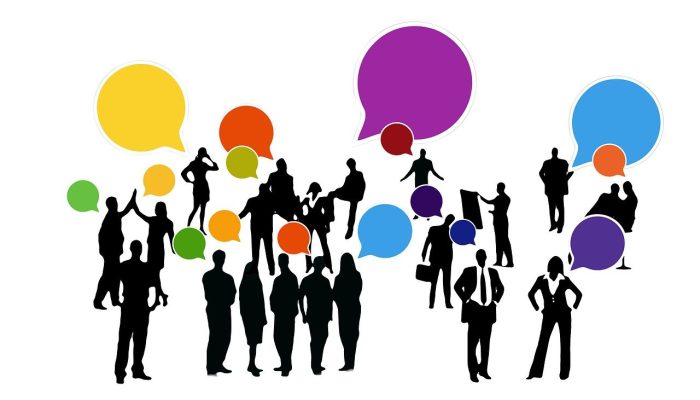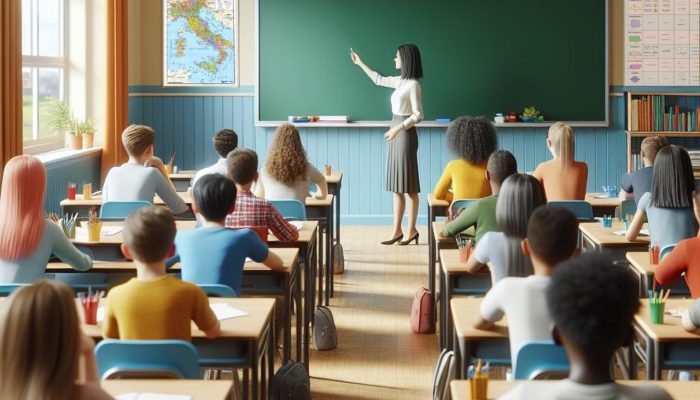An Overview of Primary Socialization & Examples of Primary Socialization
Primary socialization is a fundamental concept in sociology, referring to the initial process through which individuals learn the norms, values, beliefs, and behaviors of their society. This process begins in early childhood and is primarily facilitated by the family, although other agents such as peers, schools, and media also play significant roles.
During primary socialization, children internalize the culture of their society, acquiring the skills and knowledge necessary to function within that society. This process is crucial as it lays the foundation for an individual’s social identity and shapes their understanding of the world around them.

Examples of primary socialization can be seen in various aspects of everyday life. For instance, children learn language from their caregivers, acquiring not only vocabulary but also the rules of grammar and syntax specific to their culture. They also learn basic social norms and etiquette, such as how to greet others, take turns, and show respect for authority figures.
Another example is the transmission of cultural values and beliefs. Through interactions with family members, children learn what is considered right or wrong, important or unimportant, in their culture. These values shape their attitudes and behaviors as they grow older, influencing their choices, relationships, and overall worldview.
Additionally, primary socialization involves the internalization of gender roles. Children learn what it means to be a boy or a girl in their society, including the expectations, behaviors, and roles associated with each gender. This learning process is often subtle but has a profound impact on how individuals perceive themselves and others.
Definition of Primary Socialization
Primary socialization is the process through which individuals, typically during early childhood, learn and internalize the values, beliefs, norms, and behaviors of their culture or society. This process is primarily facilitated by close family members, caregivers, and other significant figures in a child’s life. Primary socialization is considered crucial as it lays the foundation for an individual’s social identity and influences their understanding of the world around them.
Agents of Primary Socialization
Agents of primary socialization are key influencers in shaping an individual’s development and understanding of the world. These agents include family, peers, school, and media, each playing a significant role in socializing individuals from early childhood onwards. Among these, the family stands out as the primary agent, especially in the early years of a person’s life.
Family:
- Primary Role:
Families are the first and most influential agents of socialization. They teach children basic values, norms, and behaviors, including language, beliefs, and customs.
- Impact:
Family shapes a child’s sense of self, social roles, and understanding of relationships. It also provides emotional support and models for future interactions.
- Examples:
Children learn how to behave in social situations, express emotions, and interact with others based on family dynamics. They observe and imitate parents, siblings, and other family members, internalizing their behaviors and values.
Peers:
- Role:
Peers become increasingly influential as children grow older. They provide opportunities for socialization outside the family context.
- Impact:
Peers influence attitudes, behaviors, and social norms. They offer acceptance, support, and feedback, shaping an individual’s self-concept and identity.
- Examples:
Children learn to negotiate, cooperate, and develop friendships with peers. They may adopt peer group norms, styles, and interests.
School:
- Role:
Schools provide formal education and socialization. They teach academic skills, social norms, and values.
- Impact:
Schools socialize children into societal roles, expectations, and cultural practices. They also promote teamwork, competition, and discipline.
- Examples:
Children learn to follow rules, interact with authority figures, and collaborate with classmates. They develop a sense of belonging and loyalty to their school community.
Media:
- Role:
Media, including television, movies, and the internet, serve as a powerful socializing agent, especially in modern society.
- Impact:
Media influences attitudes, values, and behaviors. It shapes perceptions of social reality and provides models for behavior.
- Examples:
Children learn about societal norms, roles, and expectations from media portrayals of gender, race, and culture. They may emulate fictional characters or celebrities.
In conclusion, primary socialization is a complex process that involves multiple agents working together to shape an individual’s development. While family plays a central role, other agents such as peers, school, and media also contribute significantly to socializing individuals and preparing them for participation in society.

Examples of Primary Socialization
Here are some examples of how primary socialization works in real life:
- Language Acquisition:
- Scenario: A baby is born into a family where English is spoken.
- Process: From a very young age, the baby hears English spoken around them. They begin to imitate sounds, eventually forming words and sentences.
- Influence: The family’s language becomes the child’s primary means of communication, shaping their thought patterns, social interactions, and cultural identity.
- Manners and Social Norms:
- Scenario: A child observes their parents saying “please” and “thank you” when interacting with others.
- Process: The child learns that these polite expressions are expected in social interactions.
- Influence: The child internalizes these manners and begins to use them in their own interactions, reflecting the cultural norms of politeness and respect.
- Cultural Customs and Traditions:
- Scenario: A family celebrates a cultural festival every year with specific rituals and practices.
- Process: The child participates in these celebrations, observing and engaging in the customs unique to their culture.
- Influence: The child learns the significance of these customs, understanding their cultural heritage and identity through these practices.
- Gender Roles and Expectations:
- Scenario: A girl grows up in a family where traditional gender roles are reinforced.
- Process: She observes her mother taking care of the household chores while her father goes to work.
- Influence: The girl internalizes these gender roles, shaping her expectations of her own future roles and responsibilities.
- Value Systems:
- Scenario: A family places a high value on honesty and integrity.
- Process: The parents consistently emphasize the importance of telling the truth and standing up for what is right.
- Influence: The child adopts these values, internalizing them as guiding principles in their own behavior and decision-making.
These examples demonstrate how primary socialization occurs through everyday interactions within the family, highlighting the role of family members as primary agents in shaping a child’s understanding of language, manners, cultural customs, gender roles, and values.
Challenges and Criticisms
The concept of primary socialization, while widely accepted, is not without its challenges and criticisms. One key debate revolves around the relative importance of genetics versus socialization in shaping behavior and development. Critics argue that genetic factors play a significant role in determining behavior, personality traits, and cognitive abilities, alongside socialization influences. This perspective suggests that individuals may have genetic predispositions that interact with their social environment to influence their behavior.
Additionally, socialization is a complex process that involves multiple agents and factors. Focusing solely on primary socialization within the family may oversimplify the influences on an individual’s development. Other factors, such as peer groups, schools, and media, also play significant roles in socialization. Furthermore, the concept of primary socialization is based on Western cultural norms and may not fully account for cultural variations in socialization practices. Different cultures may prioritize different values, norms, and socialization agents, leading to variations in how individuals are socialized. Critics also argue that the concept of primary socialization may downplay the role of individual agency and choice in shaping behavior.
While socialization influences are significant, individuals also have the ability to resist or reinterpret socialization messages. With the rise of digital technology and social media, the influence of traditional agents of socialization, such as family and school, may be changing. These new forms of socialization may have different impacts on individuals’ development and socialization processes. In conclusion, while the concept of primary socialization is valuable for understanding how individuals learn cultural norms and values, it is important to recognize its limitations and consider the complex interplay of genetic, environmental, and individual factors in shaping behavior and development.
Conclusion
In conclusion, primary socialization is a fundamental process through which individuals learn the norms, values, beliefs, and behaviors of their culture or society. While it primarily occurs within the family, other agents such as peers, school, and media also play significant roles. Despite challenges and criticisms, primary socialization has a lasting impact on individuals and societies. It shapes individuals’ understanding of themselves and their place in society, influencing their behavior, attitudes, and beliefs throughout their lives. The cultural norms and values learned during primary socialization contribute to the cohesion and stability of societies, shaping social structures and interactions. Recognizing the importance of primary socialization helps us understand the complexities of human development and the diversity of cultural practices across societies.

